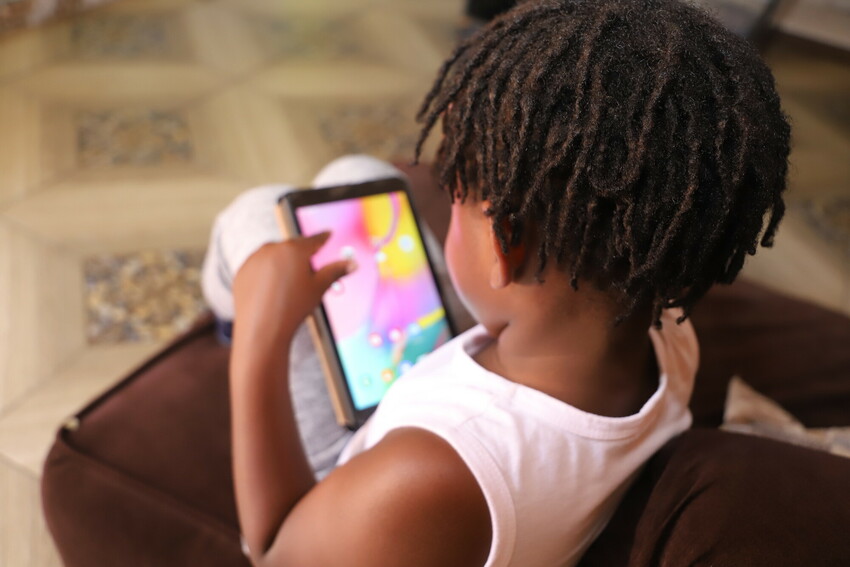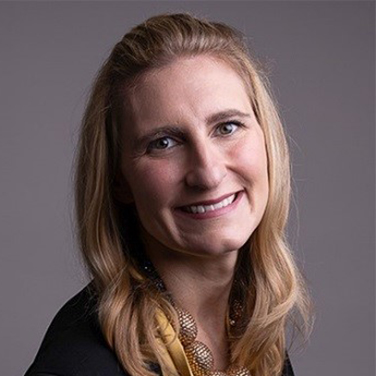Site will be
unavailable for maintenance from June. 4, 11:30 p.m., to June 5, 12:30 a.m. ET. Thank you for your
patience!
Stop putting the responsibility on parents to keep kids safe online.
By Erin Kennedy, VP, External Affairs and Partnerships Posted on 09/21/2023

Ask any parent and they probably have some awareness of the dangers lurking online. Most parents of older children and teens know that social media has risks. But if you ask a parent what they are doing to keep their kids safe online, the answer will probably be a mix of exasperation and defeat.
I’ve felt that sense of desperation as my children play and learn online more and more. I’ve even had occasional waves of stark, raving terror since the day a predator approached my own child online during COVID lockdown. As vice president of an organization focused on protecting children worldwide, where part of my role is specifically about promoting online safety, I’d like to think that protecting my children on the internet isn’t beyond me. But it most certainly is.
We’re made to feel like it’s our job alone to protect our children online. And that’s an impossible task.
The prevalence of online sexual abuse and exploitation
We don’t tolerate abuse in the real world, yet online predators are invited into our homes. While we do our job of giving our kids tools to handle what life brings, we also rely on others to help keep children safe. Rules, laws and societal and cultural norms say what is and isn’t acceptable. From fire and active shooting drills to speed limits and car safety regulations, we expect our schools, communities and law enforcement agencies to maintain order so that we and our families can go about our lives with some sense of security.
Not so on the internet. This ever-expanding virtual landscape where we spend more and more of our lives, and which shapes much of how our children experience the world, is still the Wild West in terms of safety and regulation. And while this can and does allow for freedom of speech, expression, connection and commerce, it also allows dangerous actors to take advantage and hurt our kids. As we have become more connected and social media has grown exponentially, so have the reports of online child sexual abuse materials, or CSAM. In 2022 alone, more than 31.9 million reports of online material featuring children in suspected sexual exploitation and abuse situations – that’s 88.3 million images, videos and other content – were submitted to the National Center for Missing and Exploited Children (NCMEC), a staggering 88% increase in reports since 2019.
CSAM and its perpetrators are everywhere online – on gaming platforms, video sharing sites, and chat apps accessible through search engines and social media. All children are at risk for online sexual exploitation and abuse, no matter their family situation, home environment or socioeconomic status. Security and parental controls vary widely from platform to platform, are frustratingly inconsistent, and overall make it simply too easy for predators to access our children.
It's time to end online sexual abuse
Not surprisingly, parents are fed up. According to a recent U.S. survey led by Parents Together, an overwhelming 95% of parents say that they want stronger regulations for social media companies. And 93% think these companies aren’t doing enough to keep children safe. Tech companies have the tools and ability to monitor their platforms and make real, meaningful changes to respond to this ever-growing threat – and yet – they have done nothing.
It’s also past time for lawmakers to act. Fortunately, there is growing bipartisan support in Congress to address online safety, although legislation so far has failed. Just last year, President Biden established a task force to address online harassment and abuse, bringing the issue of online safety to the fore. These are important steps toward meaningful change, but the momentum needs to continue until effective legislation is passed and tech companies are finally held accountable.
Until then, parents are helpless to protect their children from online abuse, and children are left to suffer the consequences. Technology created this monster. Only technology can take it down.
Join our fight against online sexual abuse at ChildFund.org/takeitdown.

Erin Kennedy is a leading policy, children’s rights and gender expert with almost 20 years of experience in the field. Ms. Kennedy is responsible for setting strategic direction for the organization’s business development, U.S. advocacy and external engagement portfolio. She holds a bachelor’s degree in psychology from Duquesne University and a master’s in public administration from American University. She is also the mom of two young girls ages 10 and 11.
Loading...

